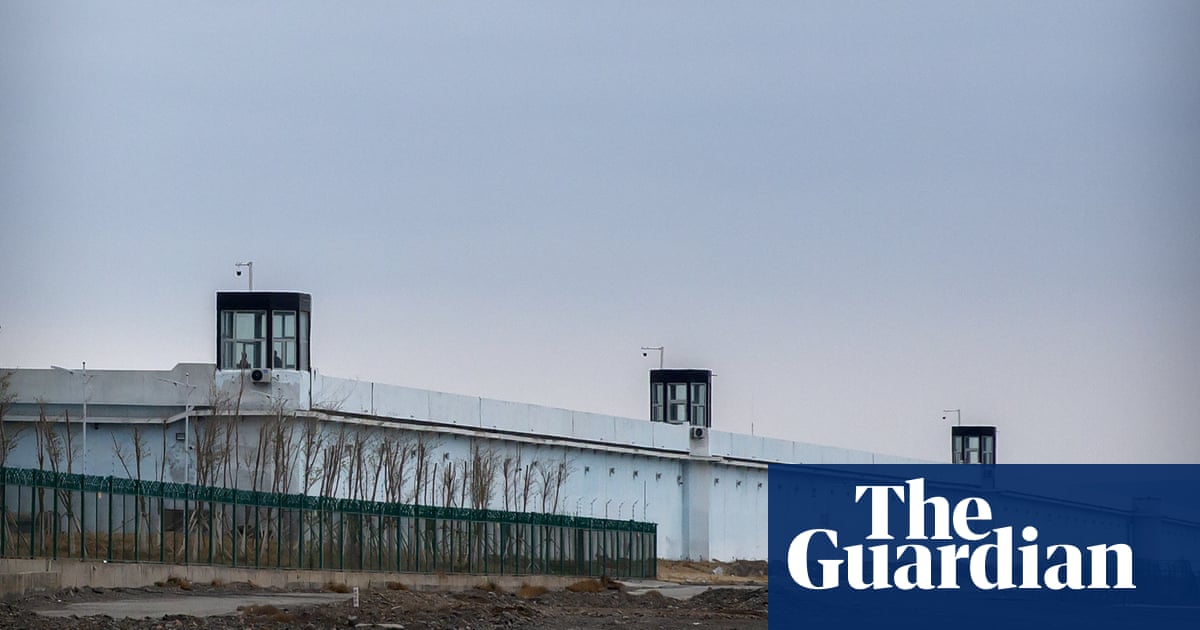
“I feel like my house is on fire, it’s burning down and my children, my family is trapped inside,” said Zumrat Dawut via video link. “I scream and scream for the world to come, and help me put out the fire, but at times I feel like no one is coming to our rescue.”
Last Wednesday, as Michelle Bachelet, the UN high commissioner for human rights, finished her term and released a long-awaited report on abuses in Xinjiang, Dawut was protesting alongside other Uyghur exiles in Washington DC.
“The report was all we could think about,” she said. “We were eager to find out about how reflective it would be about what has happened to our people. Any kind of crime you can think of is happening to Uyghurs.”
The 45-page report was published years after the world first learned of a huge crackdown on Uyghurs and other Muslim minorities in the Chinese region of Xinjiang, including mass detention, re-education, and religious and cultural oppression.
From the time of receiving the first notifications to publication, the report took half a decade to compile. It determined that the Chinese government had been committing long-running human rights abuses against Uyghur and other ethnic Muslim minorities in Xinjiang, likely to the level of crimes against humanity.
The report demolished Beijing’s counter-terrorism framework, which it used to justify the crackdown, and found credible evidence of torture and assault, mass arbitrary detention, forced medical procedures and “credible indications” of coerced family planning, including forced sterilisation.
Victims and rights groups had feared a watered-down report more in line with the statement delivered immediately by Bachelet after a highly orchestrated and controversial visit to Xinjiang. But instead it was – within the confines of the UN’s cautious language – damning. China’s government, which had praised Bachelet’s post-visit statement as informed and truthful, furiously dismissed the investigative report as smears and lies.
Dawut is an outspoken advocate for Uyghur victims of oppression, particularly women, and has told her story again and again, in the hope of spurring global action. She and her family fled to the US in 2019, after she spent more than two months in the detention camps, where she says she was shackled, interrogated, beaten and forcibly sterilised.
The UN report added little to what is already known, but the fact that it came from the world’s leading human rights body, of not one government but hundreds, gave relief and hope to many victims.
Rayhan Asat, a Uyghur activist and human rights lawyer based in the US, said: “On a personal level, it’s been one of those few nights I feel like I can sleep knowing that the atrocities will soon end … I am hopeful, optimistic.
“The Chinese government says [the report] does no good to anybody. That is utterly wrong. It helps all the victims whose voices and agency are totally taken away. Let the victims speak for themselves.”
Rayhan Asat’s brother Ekpar disappeared into Xinjiang’s detention network in 2016. Photograph: Jeenah Moon/Reuters
The report also noted the evidence of Chinese government reprisals against those who spoke out – including by “personal or gendered attacks” – and their families.
The Chinese government has named Dawut in press conferences, releasing personal information and photos, and calling her a liar. She – like many others – has cut off contact with loved ones for their protection. Asat’s family remains in Xinjiang and she cautiously speaks to them occasionally, but says they were barricaded in their home during Bachelet’s visit to the region.
Asat said: “We should be able to express our grievances and sorrow with our family.”
Zubayra Shamseden has not spoken to her siblings for more than five years, including one brother indefinitely detained since 1998, and has lost a number of other family members.
She had been expecting a highly censored report, dictated by Beijing, but “fortunately, it confirmed what we’ve been telling the world and trying to make world understand about [the] Uyghur situation for many decades”.
Shamseden hopes the UN can use its power to hold China accountable and launch “worldwide action”.
She said: “I wish to see actions now, not just statements, reports, ‘concerns’ only. The Uyghur matter should be discussed at the UN security council and the human rights council.”
Human rights groups have called for the UN’s human rights council to swiftly table the report, and pass resolutions for an immediate and independent investigation.
Asat, whose brother disappeared into Xinjiang’s detention network in 2016, said locating and releasing missing Uyghurs must be a priority.
“Many Uyghurs have disappeared and we don’t know what happened to them,” she said. “For Syria, they established missing persons mechanisms … In other instances its done though the ICC [international criminal court] but we’re far from there yet.”
All those the Guardian spoke to criticised the report’s lack of comment on whether China is committing genocide, as has been declared by the US government, as well as the Canadian and Dutch parliaments, and several rights and legal groups.
Shamseden said: “It described in detail China’s abuses … against my people, which may be crimes against humanity. But it is not strong enough in terms of naming that [sic] atrocities, which is a genocide.”
Dawut said such statements cannot stand on their own. “They declared it’s a genocide but didn’t do anything to stop it,” she said of the US, Dutch and Canadian declarations.
“We had family, parents, friends; we loved each other, we had a dynamic society. When we faced this genocide, the whole world, almost all the countries, pushed us away to suffer by ourselves.”
She returned again to the analogy of the fire in the house. “Our people are still inside, trapped,” said Dawut. “Without any action, it is all meaningless.”







